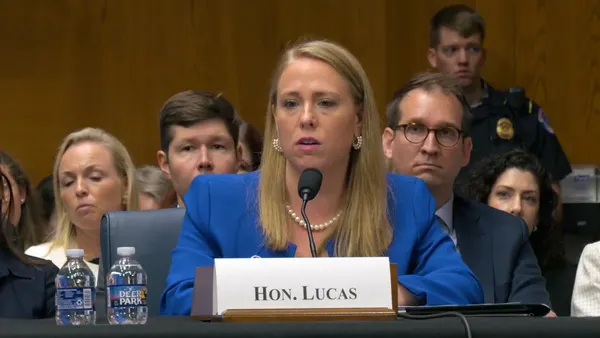Dive Brief:
- A Texas restaurant has agreed to pay $24,000 to settle claims that it violated federal law when it fired a pregnant bartender because she stopped wearing her uniform: A body-hugging shirt and short hot pants.
- The U.S. Equal Employment Opportunity Commission (EEOC) alleged in a lawsuit that Nick's Sports Grill violated Title VII of the Civil Rights Act of 1964, as amended by the Pregnancy Discrimination Act (PDA), when it fired the bartender for wearing capri pants and a second layer over her shirt.
- In settling the suit, the employer also agreed to provide annual training on pregnancy discrimination and to impose discipline up to termination on any manager who discriminates based on sex or permits such conduct to occur under his or her supervision. "Even bars and clubs with provocative uniforms cannot discriminate by using the dress code requirement to oust a pregnant employee," said Toby Wosk Costas, an EEOC trial attorney, in a statement. "She could have continued to work at Nick's had she not become pregnant. Under civil rights laws, that's pregnancy discrimination, which is a form of discrimination based on sex."
Dive Insight:
The PDA forbids an employer from taking adverse employment actions against an employee because of pregnancy, as do many state and local laws that also have requirements that go above and beyond federal law.
Employers must treat pregnant women “the same for all employment-related purposes, including receipt of benefits under fringe benefit programs, as other persons not so affected but similar in their ability or inability to work,” the PDA says. Because of this language, employers that offer light duty or something similar to other workers would have to provide similar accommodations to a pregnant employee, Randy Gepp, an employment litigation attorney with Taylor English, previously told HR Dive.
In its enforcement guidance on pregnancy discrimination, EEOC goes a step further, recommending that employers train managers to recognize requests for reasonable accommodation, including those for pregnancy: "Given the breadth of coverage for pregnancy-related impairments under the [Americans with Disabilities Act], as amended, managers should treat requests for accommodation from pregnant workers as requests for accommodation under the ADA unless it is clear that no impairment exists."












